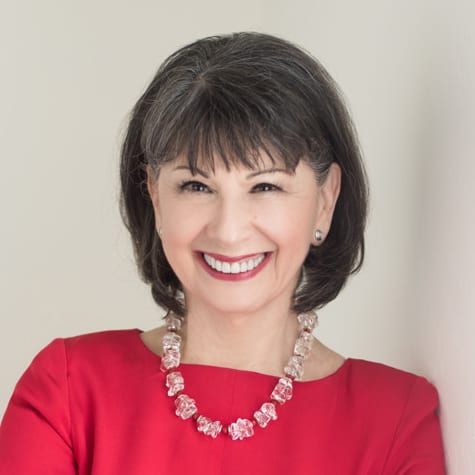What My Grandmother Molly’s Cherry Wine Says About Humanity During COVID-19

ISSUE 126 — APRIL 13, 2020
Making a grocery store run, I spotted a lone bottle of cherry wine on the shelf. Memories of my paternal grandmother Molly or Malle came flooding in.
I can see her in her small kitchen that smelled of garlic in Temple TX, cooking all day for her bustling household that usually included Granddaddy Isak or Isaac, one or more of their four sons living at home, and on the weekends their daughter Mayme home from her job in Houston, plus on Sundays my parents and maternal grandmother and sometimes other relatives.
When she wasn’t cooking, she was cleaning up from having cooked.
She raised chickens in the backyard. She always had gallon jars of Kosher dill pickles marinating on the shelf and burgundy colored borscht in the refrigerator. Her English was limited and heavily accented with Yiddish, which as a precocious preschooler I felt compelled to correct. “No, it’s not potatoes fried French. It’s French fries.”
She made homemade cherry wine. It was used for special holidays and family occasions. I was allowed a few heavily diluted sips at those times.
Molly died when I was four. My father took me to see her in the hospital shortly before she died. I’m sure he wanted to be sure I would remember her.
The big Sunday dinners stopped and the remaining bottles of wine were stored in a low cabinet next to the sink and doled out reverentially. It was a symbol of continuity and connection within the family. And also the wine was super delicious. Yes, even in the diluted version given to a four-year-old.
So I snagged the bottle of wine at Safeway, because it was imbued with meaning: family roots, the unconditional love a child gets from grandparents, and the safety of grandmother Molly’s soft, cushy lap.

And it got me thinking about these three things that have become even more obvious since the onset of the pandemic of COVID-19.
Humans are infinitely adaptable.
Molly came to this country, parachuting into a new culture, new language, and a new marriage. As a single woman without a job she wasn’t allowed off the ship when she arrived in Galveston until she married my grandfather then and there. (See their story here:)

She made a home and raised five children of her own plus three more girls, children of her sister, who came to live with my Isaac and Molly after their mother died.
She adapted in ways I probably can’t even imagine, retaining some of her European ways to be sure, one of them being making that cherry wine, but overall navigating successfully as a stranger in a strange land.
Similarly, in the face of a pandemic that is disrupting every aspect of daily life, we humans are zooming to do business, educate our children, and host friends and family gatherings virtually.
We are adapting to driving less, much to the benefit of the planet, to buying less because who needs that new suit when we’re wearing yoga pants every day and who can afford it when there is less money coming in anyway, and to standing six feet apart in the line at the grocery store.

Humans are infinitely generative.
There are no limits to human ingenuity, but sometimes it takes a crisis to generate needed solutions. We create new technologies to solve new problems. We’ll develop better, faster testing, produce more and easier to use ventilators, and eventually a vaccine to prevent the passing of the disease from one to another.
We figure stuff out. When there is a lack of leadership at one level of government, others step into the void. In Arizona, mayors ordered social distancing and business closures long before the governor, and people across the country tune in to NY Governor Andrew Cuomo’s daily briefings. We see the Javits conference center being turned into an overflow hospital by the Army Corps of Engineers.
We make new uses of existing technologies such as videoconferencing and good old fashioned phones to provide healthcare without putting people at risk of coming into medical facilities. I predicted in my column last week that this pandemic shines such a bright light onto the inadequacies and disparities of the U.S. healthcare system that it becomes an opportunity to take the energy of that chaos and transform our system into one that is better prepared and more equitable.
Humans are infinitely connective.
We’re calling, texting, and emailing to check in on one another. We’re enjoying having lunch with our children. We’re finding ways to help each other at food banks, by delivering meals to senior neighbors living alone, and those who can are helping on a large scale. The Washington Nationals Baseball team and World Central Kitchen Chef Jose’ Andres are working together to feed thousands every day.
Numerous companies started stepping up to develop or produce Personal Protective Equipment once word got out that they are needed. Social media, our pervasive digital connector, has helped spread the word about that need.
I’ve been making it a point to call at least two people every day, including those I haven’t connected with in some time. Even if I just get voicemail on the other end, I receive appreciative messages in return. I am hearing from long-lost family and friends and it delights me each time.
There is nothing like a pandemic to remind us that we are indeed all connected. If disease can transmit so quickly from person to person, then so can good ideas and good deeds be equally infectious. Spontaneous though socially distanced clapping in appreciation for first responders and the brave medical personnel working day and night to heal the sick and help us all survive the pandemic demonstrates that we understand that the social fabric is tightly woven from our collective strands.
It’s a great leveler too. When celebrities like Tom Hanks and politicians like Boris Johnson are susceptible, the clear message is that so are we all. And when we see that poverty, poor healthcare, and racism exacerbate the rate of COVID-19 among African Americans and Latinx, we had better be called to realize that working for greater equity in society affects us all, and can affect any of us because we truly are all #inthistogether.
Take The Lead is providing weekly opportunities to connect with other women in live free interactive Virtual Happy Hour web chats. This Thursday, April 16 at 6pm eastern time, please join me in conversation with Tiffany Dufu, author of Drop the Ball and founder of The Cru on the topic, “Kids at home is challenging enough but what do you do when mom and dad get COVID, and mom has just started a new business?” Register here. [Registration should be live Monday.] Your voice is important.

We need each other during this time. A little cherry wine helps too.

GLORIA FELDT is the New York Times bestselling author of several books including No Excuses: 9 Ways Women Can Change How We Think About Power, a sought-after speaker and frequent contributor to major news outlets, and the Co-Founder and President of Take The Lead. People has called her “the voice of experience,” and among the many honors she has been given, Vanity Fair called her one of America’s “Top 200 Women Legends, Leaders, and Trailblazers,” and Glamour chose her as a “Woman of the Year.”
As co-founder and president of Take The Lead, a leading women’s leadership nonprofit, her mission is to achieve gender parity by 2025 through innovative training programs, workshops, a groundbreaking 50 Women Can Change The World immersive, online courses, a free weekly newsletter, and events including a monthly Virtual Happy Hour program and a Take The Lead Day symposium that reached over 400,000 women globally in 2017.
